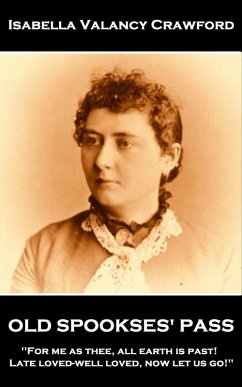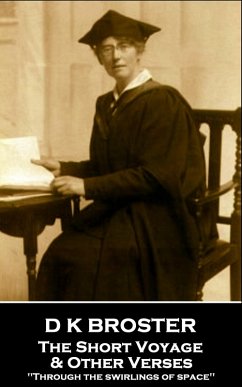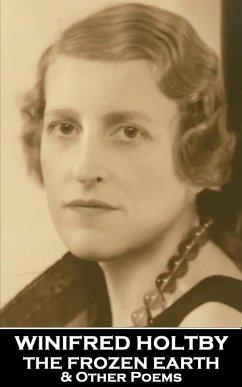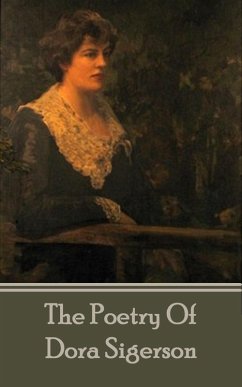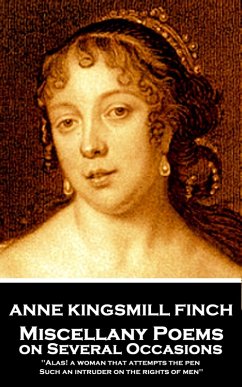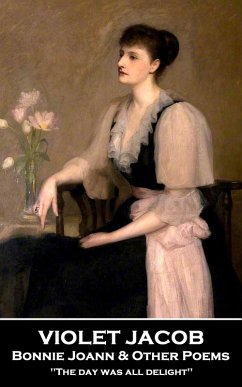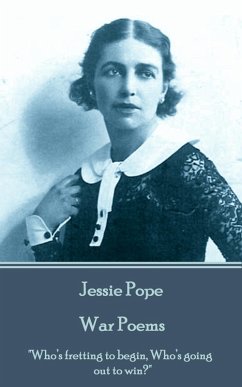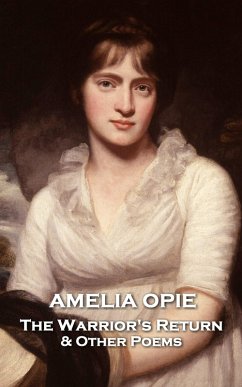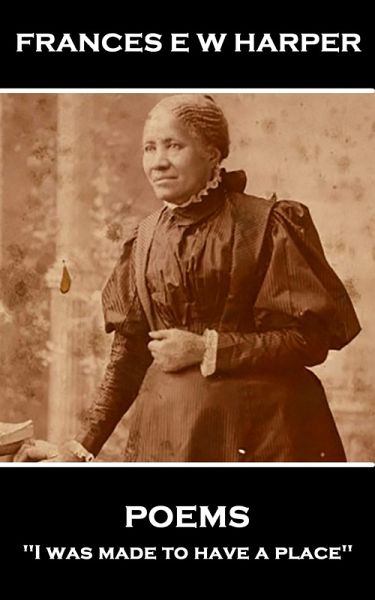
Poems (eBook, ePUB)
'I was made to have a place''

PAYBACK Punkte
1 °P sammeln!
Frances Ellen Watkins Harper was born free on 24th September 1825 in Baltimore, Maryland which, at that time, was still a slave state.By age 3 Frances had been orphaned and thereafter raised by her maternal aunt and uncle who also gave her her surname; Watkins.At 13 she was working as a seamstress and then as a nursemaid for a white family that owned a bookshop. Here any spare time was used to read books in the shop and work on her own writing which from 1839 included pieces in anti-slavery journals.By the age of 20 Frances had published her first poetry book 'Forest Leaves, or Autumn Leaves',...
Frances Ellen Watkins Harper was born free on 24th September 1825 in Baltimore, Maryland which, at that time, was still a slave state.
By age 3 Frances had been orphaned and thereafter raised by her maternal aunt and uncle who also gave her her surname; Watkins.
At 13 she was working as a seamstress and then as a nursemaid for a white family that owned a bookshop. Here any spare time was used to read books in the shop and work on her own writing which from 1839 included pieces in anti-slavery journals.
By the age of 20 Frances had published her first poetry book 'Forest Leaves, or Autumn Leaves', marking her out as an abolitionist voice of note. Her second book, 'Poems on Miscellaneous Subjects' followed and was reprinted many times. It was the beginning of a remarkable career both for her literary pursuits and also her social activism.
In 1850, at age 26, she moved to teach domestic science at Union Seminary, a school for Black students near Columbus, Ohio. She was its first female teacher.
After joining the American Anti-Slavery Society in 1853, Frances began her career as a public speaker and political activist.
In 1858, Frances refused to vacate her seat or ride in the 'colored' section of a segregated trolley car in Philadelphia. That same year her poem 'Bury Me in a Free Land' was published in The Anti-Slavery Bugle. She created literary history in 1859 when her short story 'Two Offers' was the first short story published by a Black woman.
In 1860 she married a widower named Fenton Harper. They had one daughter together in addition to his three children from a previous marriage. When her husband died four years later she kept custody of their daughter and moved to the East Coast.
Frances founded, supported, and held high office in several national progressive organizations. In 1886 she became superintendent of the Colored Section of the Philadelphia and Pennsylvania Women's Christian Temperance Union. A decade later she helped found the National Association of Colored Women and served as its vice president.
Throughout her activist activities she continued to write, weaving politics into her fictional narratives. Although her canon is small it contains work that advanced thinking on the roles of black women in society.
Frances E W Harper, abolitionist, suffragist, poet, teacher, public speaker, and writer, died of heart failure on 22nd February 1911 in Philadelphia. She was 85. Women were still not permitted to vote,
Whereas thou hast been forsaken and hated, so that no man went through thee, I will make thee an eternal excellency, a joy of many generations.
By age 3 Frances had been orphaned and thereafter raised by her maternal aunt and uncle who also gave her her surname; Watkins.
At 13 she was working as a seamstress and then as a nursemaid for a white family that owned a bookshop. Here any spare time was used to read books in the shop and work on her own writing which from 1839 included pieces in anti-slavery journals.
By the age of 20 Frances had published her first poetry book 'Forest Leaves, or Autumn Leaves', marking her out as an abolitionist voice of note. Her second book, 'Poems on Miscellaneous Subjects' followed and was reprinted many times. It was the beginning of a remarkable career both for her literary pursuits and also her social activism.
In 1850, at age 26, she moved to teach domestic science at Union Seminary, a school for Black students near Columbus, Ohio. She was its first female teacher.
After joining the American Anti-Slavery Society in 1853, Frances began her career as a public speaker and political activist.
In 1858, Frances refused to vacate her seat or ride in the 'colored' section of a segregated trolley car in Philadelphia. That same year her poem 'Bury Me in a Free Land' was published in The Anti-Slavery Bugle. She created literary history in 1859 when her short story 'Two Offers' was the first short story published by a Black woman.
In 1860 she married a widower named Fenton Harper. They had one daughter together in addition to his three children from a previous marriage. When her husband died four years later she kept custody of their daughter and moved to the East Coast.
Frances founded, supported, and held high office in several national progressive organizations. In 1886 she became superintendent of the Colored Section of the Philadelphia and Pennsylvania Women's Christian Temperance Union. A decade later she helped found the National Association of Colored Women and served as its vice president.
Throughout her activist activities she continued to write, weaving politics into her fictional narratives. Although her canon is small it contains work that advanced thinking on the roles of black women in society.
Frances E W Harper, abolitionist, suffragist, poet, teacher, public speaker, and writer, died of heart failure on 22nd February 1911 in Philadelphia. She was 85. Women were still not permitted to vote,
Whereas thou hast been forsaken and hated, so that no man went through thee, I will make thee an eternal excellency, a joy of many generations.
Dieser Download kann aus rechtlichen Gründen nur mit Rechnungsadresse in D ausgeliefert werden.




